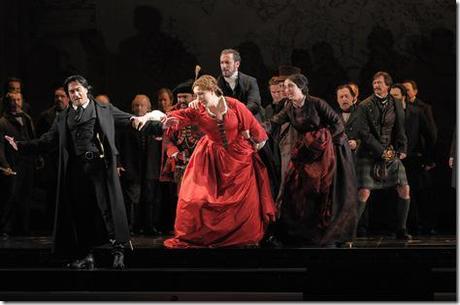
There seemed to be a tidal wave of rage that I had not felt since the debut of the Robert Wilson Lohengrin over ten years ago (a production that has since become a classic of the Met repertory, as often happens with productions that are initially reviled). But match an avant-garde production with a traditional nineteenth-century work, and the response is almost guaranteed to be negative, never more so in my experience than in the response to this Sonnambula.Īs someone who found the production deeply flawed, but not at all worthy of contempt, I found myself puzzled and ultimately depressed by the response, which came not just from the usual malcontents, but also from people whom I know to be intelligent and engaged fans. New York is slightly more open to modern approaches to contemporary operas recent non-traditional productions of John Adams’ Doctor Atomic and Philip Glass’s Satyagraha were well received. Even popular successes like Julie Taymor’s Zauberflöte and Anthony Minghella’s Madama Butterfly received a smattering of mixed responses from opening night audiences suspicious of directorial liberties. Zimmerman received most of the blame, but the evening’s star, French soprano Natalie Dessay, seen as partly responsible for the production’s concept, was also singled out for opprobrium.īoos at the Metropolitan Opera are nothing new, especially for stylized stagings. Audiences seemed not just disappointed with the production, which relocated the piece from an Alpine village to a modern rehearsal room, but viscerally upset-furious, even.

A sea of angry, vitriolic “boos” filled the house, and, in the days that followed, the negative response continued on the blogs and chat boards in most of the critical notices. But on March 3, the negative reception that awaited the director Mary Zimmerman and her production team, responsible for the new production of Vincenzo Bellini’s La Sonnambula, was of a different order altogether.

Opera fans have strong opinions on staging, and the conservative Met audience has little tolerance for anything other than extravagant realism.


On opening night of new productions at the Metropolitan Opera, the production team traditionally takes a bow, and it’s not unusual for the audience to give them a mixed reception.


 0 kommentar(er)
0 kommentar(er)
